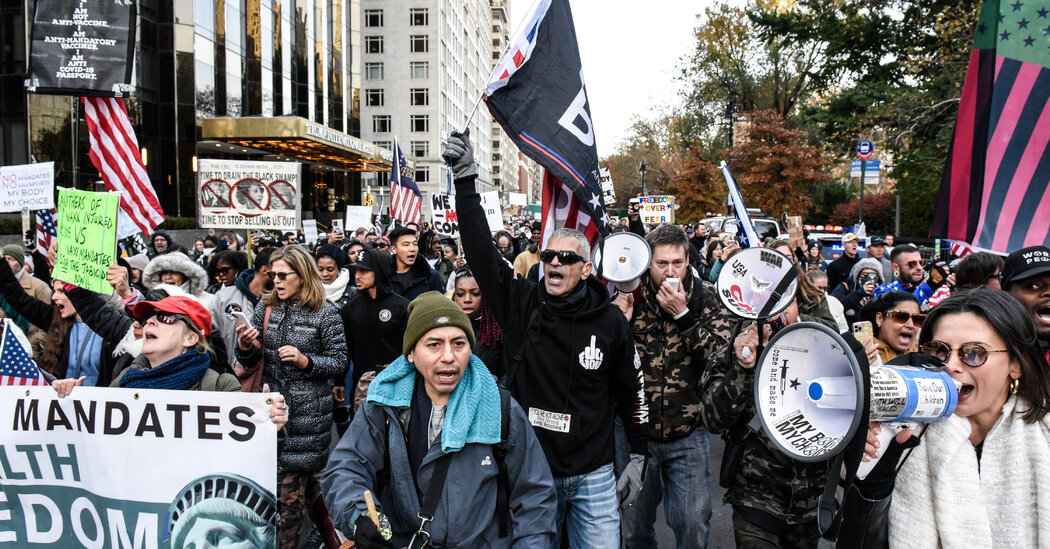
A federal judge issued a preliminary injunction on Tuesday to halt the start of President Biden’s national vaccine mandate for health care workers, which had been set to begin next week.
The injunction, written by Judge Terry A. Doughty, effectively expanded a separate order issued on Monday by a federal court in Missouri. The earlier one had applied only to 10 states that joined in a lawsuit against the president’s decision to require all health workers in hospitals and nursing homes to receive at least their first shot by Dec. 6 and to be fully vaccinated by Jan. 4.
“There is no question that mandating a vaccine to 10.3 million health care workers is something that should be done by Congress, not a government agency,” Judge Doughty, of U.S. District Court for the Western District of Louisiana, wrote. He added: “It is not clear that even an act of Congress mandating a vaccine would be constitutional.”
The judge, who was nominated to the court by former President Donald J. Trump, also wrote that the plaintiffs had an “interest in protecting its citizens from being required to submit to vaccinations” and to prevent the loss of jobs and tax revenue that may result from the mandate.
Several cities and states had already imposed their own vaccine mandates for health care workers, in an effort to contain outbreaks that were often passed from communities into medical settings like nursing homes. The momentum for vaccine mandates gained steam during the summer as the Delta variant swept through nursing homes, causing spikes in staff and resident infections, as well as overwhelming hospitals in many states with another Covid surge.
Some of the larger hospital chains and several big nursing home operators also began requiring staff vaccinations, before the president began calling for nationwide compliance. Vaccinations among health care employees have increased since the summer, although cases among residents and staff remain in the thousands reported each week. Nationwide, the immunization rate among nursing home staffs is more than 74 percent, although much lower rates still exist in some regions.
In leading a 14-state lawsuit against the mandate, Attorney General Jeff Landry of Louisiana said the federal mandate would blow holes in state budgets and exacerbate shortages in health care facilities.
The Biden administration tied compliance with the vaccine mandate to federal funding, requiring immunizations of millions of workers at hospitals, nursing homes or other health facilities that heavily rely on the Medicare or Medicaid programs. But many health care providers — especially nursing home and rural hospital operators — complained that staff members who were hesitant to be immunized would leave, aggravating employee shortages that plagued the industry long before the pandemic.
Those complaints helped swell opposition in many states, like Texas and Florida, that have been vehemently against dictates on vaccines, mask-wearing and other federal policies at the heart of public health advice during the pandemic.
The Coronavirus Pandemic: Key Things to Know
More than a dozen states and some employers joined forces to fight a broader mandate that would require private employers of 100 or more workers to impose companywide immunization. An appeals court has temporarily blocked that mandate as well, as the challengers to the policy pursue their arguments that the Occupational Safety and Health Administration overstepped its authority.
In response to recent court decisions, the Centers for Medicare & Medicaid said in a statement, “While we cannot comment on the litigation, CMS has remained committed to protecting the health and safety of beneficiaries and health care workers. The vaccine requirement for health care workers addresses the risk of unvaccinated health care staff to patient safety and provides stability and uniformity across the nation’s health care system.”
The injunction issued on Tuesday is a first step in the lawsuits against the vaccine mandate. The cases still have to be argued before a judge, and any lower-court ruling will likely be appealed.







